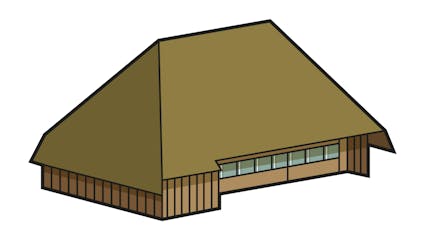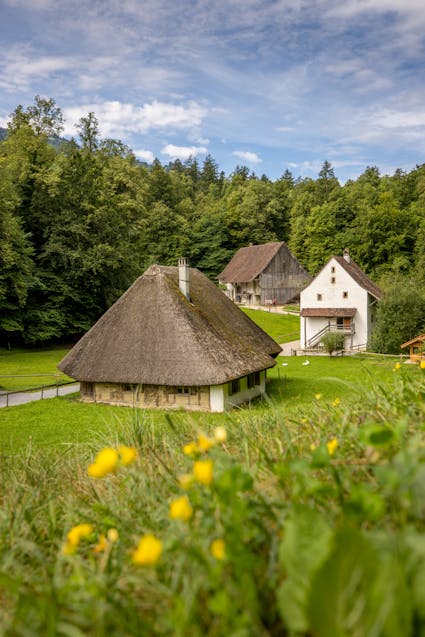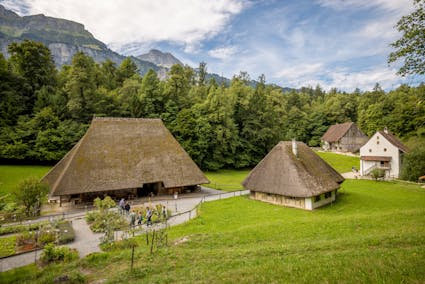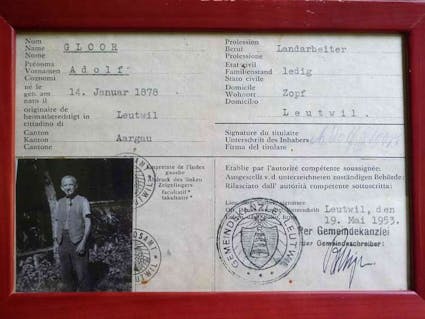231 – Day Labourer's House from Leutwil, Argovia, 1803
The house from Leutwil is as much a multipurpose building as the imposing and much larger one from Oberentfelden across the way.

Second hand
The forerunner of this building in the hamlet “im Zopf” burned down on 10 August 1802, together with six other buildings. By the following year carpenters had already put up a new house and painted their tools and the date on the barn door. Penny-pinching was the order of the day. Tiles from the grandfather’s time dated 1734 were re-used in the parlour stove.

No Money to Modernise
Heinrich Aeschenbach, “der Schmidheiri”, is recorded as the owner. The rooms are small and low-ceilinged – Schmidheiri was by no means a rich man. Members of the Gloor family have lived here nearly without interruption since 1819. They lived in modest circumstances, there was no money for modernisation. What was painful for them is luck for us: the house was not disfi gured and the original condition survived as a time capsule.
Behind the Facade
The house from Leutwil is as much a multipurpose building as the imposing and much larger one from Oberentfelden (221) across the way. The building types are similar, they both are thatched roof houses. But life under the two roofs differed greatly…

Simple Standards
The last occupant of the “Zopfhüsli”, Adolf Gloor, died in 1964. Gloor spent his life as a common man, in summer helping with the haying, in winter in the woods. He was a smallholder and had tree nurseries and garden plots. The house was empty when taken over by the Ballenberg Open-Air Museum. The tiny rooms give an idea of how low expectations were in earlier times.

Fuel for the Fire
Open hearths in the house, combustible building materials, scant means for extinguishing fire – the list of fires and their causes is painfully long in all cantons of Switzerland. There are some houses at Ballenberg that had been rebuilt following a village conflagration, among others this one from Leutwil. Fire insurance had yet to be established…
Ballenberg
Swiss Open-Air Museum
Museumsstrasse 100
CH-3858 Hofstetten bei Brienz
Opening hours Administration
3 November 2025 to 8 April 2026
From Monday to Friday
8.30 am to 11.30 am
1.30 pm to 4.30 pm
Opening hours
9 April to 1 November 2026
10 am to 5 pm daily